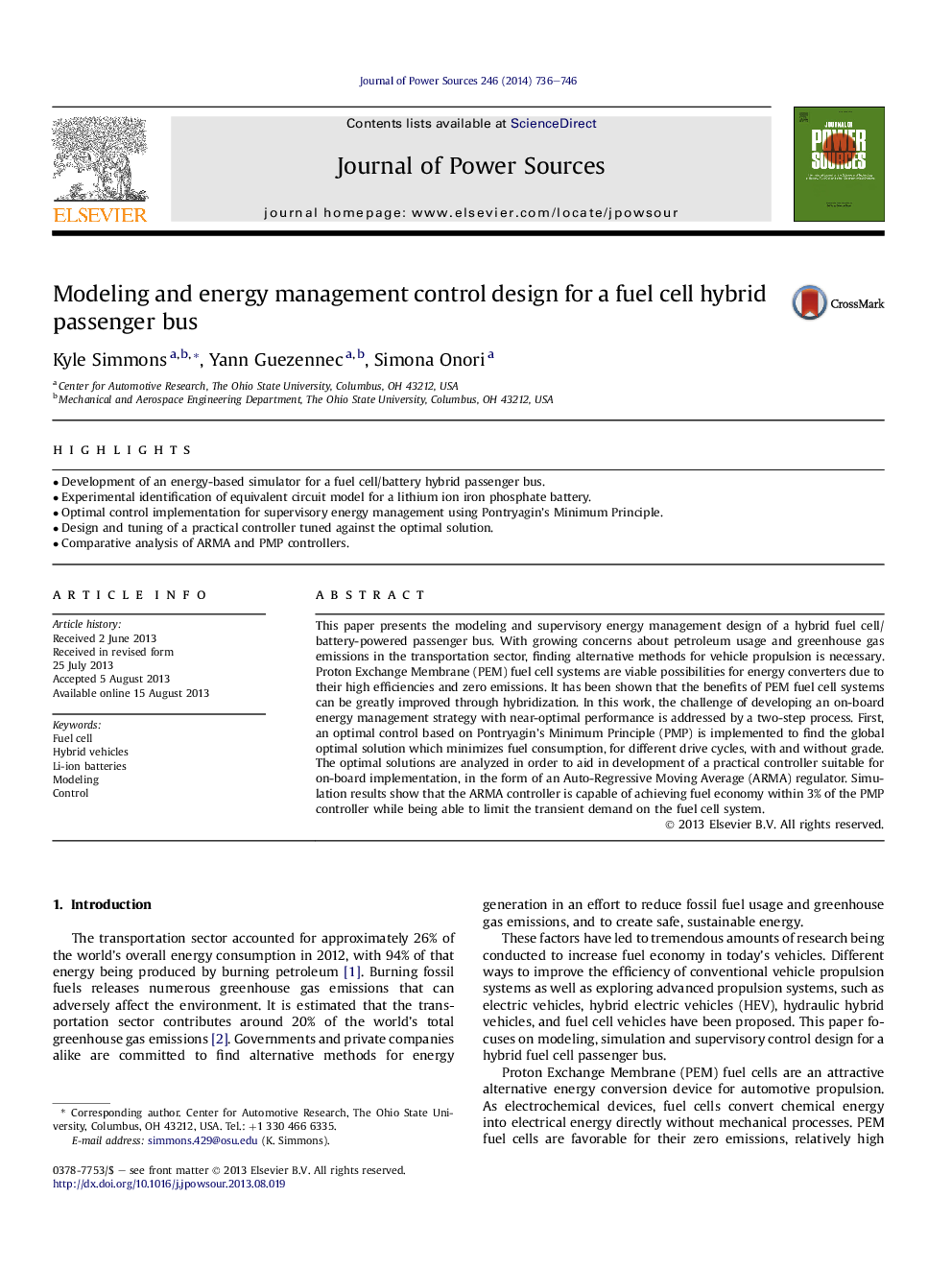| Article ID | Journal | Published Year | Pages | File Type |
|---|---|---|---|---|
| 1284280 | Journal of Power Sources | 2014 | 11 Pages |
•Development of an energy-based simulator for a fuel cell/battery hybrid passenger bus.•Experimental identification of equivalent circuit model for a lithium ion iron phosphate battery.•Optimal control implementation for supervisory energy management using Pontryagin's Minimum Principle.•Design and tuning of a practical controller tuned against the optimal solution.•Comparative analysis of ARMA and PMP controllers.
This paper presents the modeling and supervisory energy management design of a hybrid fuel cell/battery-powered passenger bus. With growing concerns about petroleum usage and greenhouse gas emissions in the transportation sector, finding alternative methods for vehicle propulsion is necessary. Proton Exchange Membrane (PEM) fuel cell systems are viable possibilities for energy converters due to their high efficiencies and zero emissions. It has been shown that the benefits of PEM fuel cell systems can be greatly improved through hybridization. In this work, the challenge of developing an on-board energy management strategy with near-optimal performance is addressed by a two-step process. First, an optimal control based on Pontryagin's Minimum Principle (PMP) is implemented to find the global optimal solution which minimizes fuel consumption, for different drive cycles, with and without grade. The optimal solutions are analyzed in order to aid in development of a practical controller suitable for on-board implementation, in the form of an Auto-Regressive Moving Average (ARMA) regulator. Simulation results show that the ARMA controller is capable of achieving fuel economy within 3% of the PMP controller while being able to limit the transient demand on the fuel cell system.
